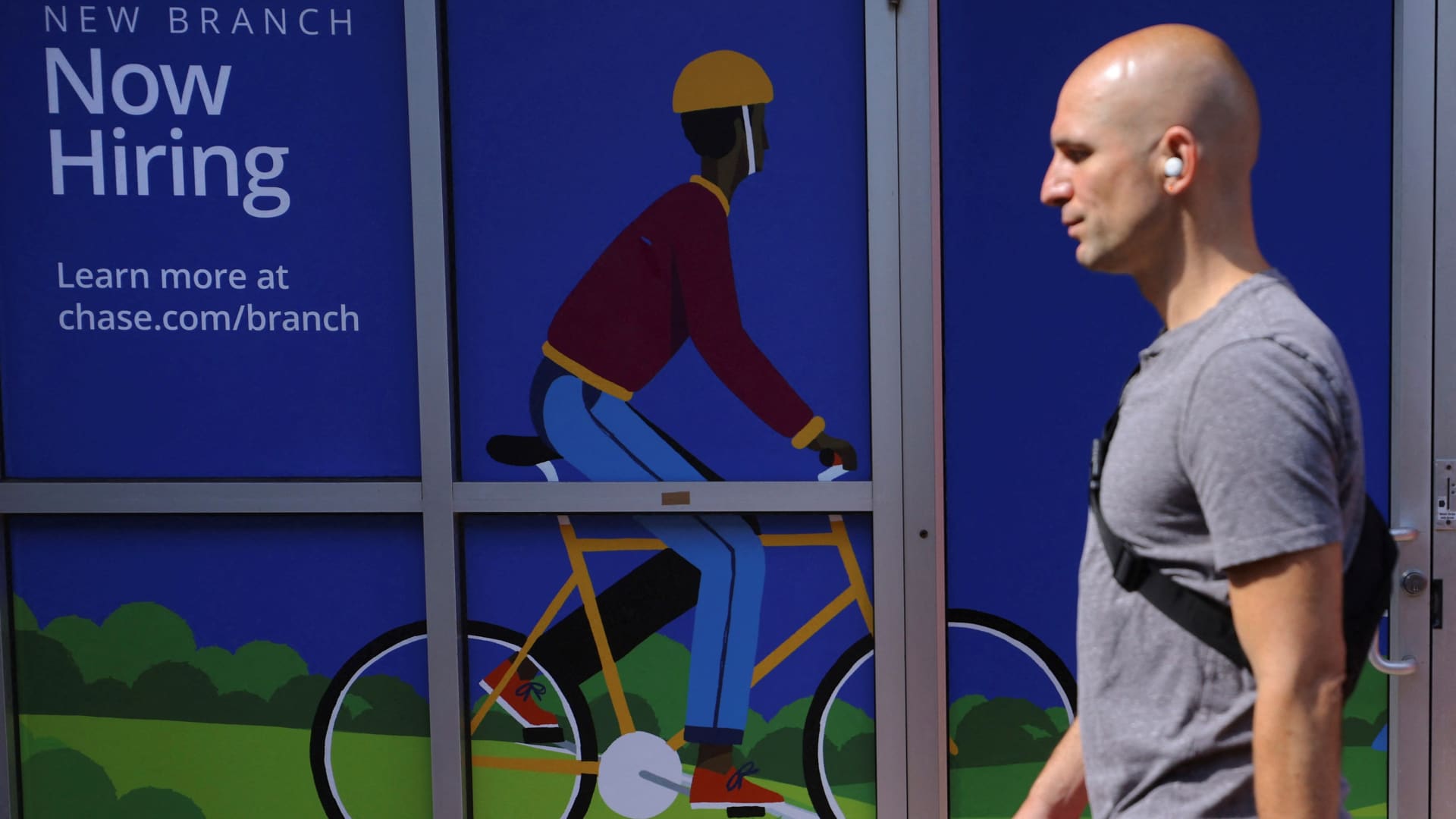
Private sector payrolls grew at the weakest pace in more than 3½ years in August, providing yet another sign of a deteriorating labor market, according to ADP.
Companies hired just 99,000 workers for the month, less than the downwardly revised 111,000 in July and below the Dow Jones consensus forecast for 140,000.
August was the weakest month for job growth since January 2021, according to data from the payrolls processing firm.
“The job market’s downward drift brought us to slower-than-normal hiring after two years of outsized growth,” ADP’s chief economist, Nela Richardson, said.
The report corroborates multiple data points recently that show hiring has slowed considerably from its blistering pace following the Covid outbreak in early 2020.
Job openings in July also touched their lowest point since January 2021, according to a Labor Department report Wednesday, while outplacement firm Challenger, Gray & Christmas reported Thursday that this was the worst August for layoffs since 2009 and the slowest year for hiring since the firm started tracking the metric in 2005.
Still, the ADP data showed that while hiring has slowed considerably, only a few sectors reported actual job losses. Professional and business services declined 16,000, manufacturing lost 8,000, and information services declined by 4,000.
The latest Labor Department data also helped dispel fears of widespread layoffs, as initial claims for unemployment benefits ticked lower to 227,000 for the week ended Aug. 31, slightly below the consensus forecast for 229,000.
On the upside, education and health services added 29,000, construction increased 27,000, and other services contributed 20,000. Financial activities also saw a gain of 18,000 and trade, transportation and utilities was up 14,000.
By size, companies that employ fewer than 50 workers reported a loss of 9,000, while those with between 50 and 499 increased by 68,000.
Wages kept rising, but continued to show an easing pace than some of the earlier gains. Annual pay increased 4.8% for those who stayed in their jobs, about the same level as July, according to ADP.
The ADP count now tees up the more closely watched nonfarm payrolls report, which the Bureau of Labor Statistics will release Friday. While the two reports can differ significantly, they were close to perfectly in line for July.
The consensus forecast is for payrolls to have increased by 161,000, after rising by 114,000 in July, with a tick down in the unemployment rate to 4.2%, though the recent data could add some downside risk to the estimate. Private payrolls grew by just 97,000 in July, according to the BLS.
Markets expect the weakening jobs picture to push the Federal Reserve into lowering interest rates when it meets Sept. 17-18. The main question is how quickly and how aggressively the Fed will move, with current market pricing indicating at least a quarter percentage point cut at this month’s meeting and a full percentage point lopped off the federal funds rate by the end of 2024.
ADP reported that it conducted a rebenchmarking of its data based on the Quarterly Census of Employment and Wages, resulting in a decline of 9,000 jobs for the August report. A similar adjustment from the BLS indicated that nonfarm payrolls had been overcounted by 818,000 between April 2023 and March 2024. ADP will do a full-year adjustment in February 2025.

